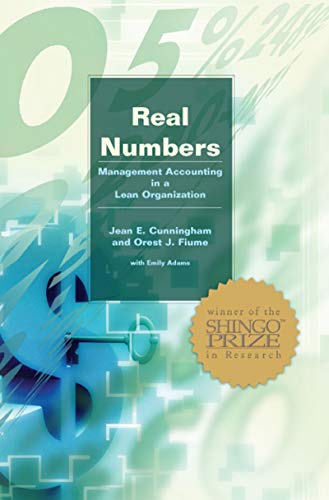I know many seasoned accountants who are lifelong learners and readers. If you ask them about their favorite accounting books, expect a pause, and possibly a very long one. However, I’ve found several titles worth reading or referencing periodically from this narrow business genre.
I started with a list of 10 books but was forcing myself after the fifth title. Plus, I wanted books that were both mind-bending and interesting. Steven Bragg did not make the list, although I appreciate his books. I didn’t want an owner’s manual on my list, which is what his insightful and instructional books generally are.
I will go in reverse order as follows:
Number 5 – Extraordinary Circumstances
Is it an accounting book, or just a great one by an internal auditor who hooks you into the story at the beginning?
I was once an internal auditor, and if I had a do-over in my career, I’d be tempted to spend my time working in forensic accounting. Perhaps that’s why I liked Extraordinary Circumstances by Cynthia Cooper so much.
Sadly, this story, which seems like fiction, is very real. Cynthia was the whistleblower of the WorldCom financial fraud, which led to that company’s bankruptcy and the loss of thousands of jobs.
Who was behind the fraud? A CFO and a few others, as well as the CEO. This book should be mandatory reading in every college and university accounting program. If you haven’t read it, consider making it a priority.
The book that every internal auditor, forensic accountant, board member, and CEO should read. This is a story of courage, determination, and resilience.
The CFO Bookshelf podcast has also discussed this book with a special guest, the former HealthSouth CFO Aaron Beam.
Number 4 – I May Be Wrong, But I Doubt It
Weighing in at number 4 is I May Be Wrong, But I Doubt It. The title alone gets Mr. Douglas Hicks on my shortlist. I tried giving this book to my wife when it arrived in the mail–no such luck.
This is not the first book I read by the author. In the early ’90s, I enjoyed (actually devoured) Activity-Based Costing: Making It Work for Small to Mid-Sized Companies.
I May Be Wrong, But I Doubt It is a collection of essays on accounting, costing, analysis, and reporting. You’ll love the chapters on depreciation and the profit % to sales fallacy. Hicks writes with a little bit of an edge along with wit and wisdom–a much-needed style for what is typically
The content inside this book is as clever as the author's title for this amazing little book. After Relevance Lost by Kaplan and Thomas is the book I wished I could have read once I started my accounting career.
Number 3
I’m a fan of anything that Jean Cunningham writes. She has a deep accounting background and was a global thought leader in Lean. Her book Real Numbers may be geared toward those working in Lean environments, but the book is applicable to all industries, including service firms. I’ve read it more than once, and it needs to be in your collection.
There are no prerequisites for reading this book, nor do you need a background in lean manufacturing to appreciate and apply Jean's ideas, which can be applied in any industry.
Not only is the book great, but so is Jean. We felt lucky to interview her on the podcast a few months into her retirement.
Number 2 – The End of Accounting
It’s not a fast read, but I had difficulty putting down The End of Accounting. My biggest takeaway from the book is that GAAP-based financial reporting is becoming meaningless.
GAAP reporting is supposed to help investors make decisions. The authors argue the opposite is happening. Their research states that only about 5% of reporting is useful and relevant to investors.
The authors include a remedy with a strategic business canvas that can be modified depending on the industry. The canvas includes narrative and facts on strategic resources, key business stats, and value created by the firm, among other relevant information.
Financials of any type should be meaningful and easy to absorb. The author presents several frameworks to overcome the loss of utility in corporate financial reporting and the accompanying disclosures.
Number 1 – Relevance Lost
The first and best accounting book I’ve ever read is Relevance Lost by H. Thomas Johnson. Profit Beyond Measure, another great read by Johnson, probably belongs on this list too.
I read this in 1992, right before I read The Goal. You couldn’t pick a better book to set the stage for Goldratt’s classic. However, you might find Johnson’s book on the pitfalls of management and cost accounting a bit dated in today’s SaaS- and subscription-centric economies.
If you like history, you’ll probably enjoy reading about the origins of cost accounting. Johnson and his co-author Richard Kaplan (The Balanced Scorecard) take us on a cost accounting journey from New England’s young textile mills to the growing railroad industry. We also learned how management and cost accounting adapted to decentralized organizations like Dupont and General Motors.
While the book is heavier on criticism than prescription, the writing was a paradigm-shifter for me because, at that point, I started to question everything in business. I wanted to know the ‘why’ behind every management decision or practice, especially regarding accounting and reporting.
Young financial leaders may not get as much out of the book as those of us who started our careers decades earlier. I’d still suggest you add this to your growing library of business books.
If you get your hands on this book, get Relevance Regained, his 2002 follow-up. When you do, notice he’s the sole author of the book. Your job is to find out why.
The authors were the first in book format to criticize the rise of modern cost accounting standards and practices. While the book is somewhat dated, the historical narrative is foundational for any accounting student.
Honorable Mentions
The problem with a top-five list is the ones left out. For instance, take More Than a Numbers Game by Thomas King. I bought and read this book in 2015, and I especially enjoyed the history that is included in the author’s book. He gets a huge high five for mentioning The Whiz Kids, which is a brick of a book and a favorite of mine. Any lifelong learner with an accounting background should pair this book with Relevance Lost (mentioned above) and Profit Beyond Measure.
Throughput Economics by Schragenheim, Camp, and Surace is not an accounting book per se. It’s what you’d expect to study in a management accounting course had it been taught by the late Eli Goldratt. It belongs in your library. If you prefer, you can listen to our interview with one of the authors before you buy it.
This is the perfect book for new bookkeepers or accountants starting their first position in a small business. This highly readable book is more than just a small reference guide.
The next book is written by someone I respect and admire. It’s not because he’s from my home state of Missouri, either.
Many of the CEOs I work with do not have a degreed accounting manager running the finance department. That’s where the book Accounting Made Simple comes in handy. There’s a reason Mike Piper has more than 1,000 reviews with an average 4.5 rating.
Mike, keep writing. Actually, he is – I look forward to reading his weekly newsletter each time it hits my inbox.
This is the perfect book for new bookkeepers or accountants starting their first position in a small business. This highly readable book is more than just a small reference guide.
Two More Noteworthy Titles
I’m going to leave you with two more titles to consider. The first one is not an accounting book per se, but every financial leader should read it.
Earlier, I mentioned Jean Cunningham’s book, Real Numbers. Art Byrne’s book, The Lean Turnaround, is phenomenal and congruent with the message found in Jean’s book. Chapter 8 is a breath of fresh air.
The next title is not an accounting book, but it’s one of the few titles I recommend to CEOs who want to increase their financial statement acumen – Warren Buffett and the Interpretation of Financial Statements by Mary Buffett.
This is one of the few books I give to CEOs to fill the gaps where their financial acumen is lacking. Each chapter is only two to three pages, and the entire book can be read in a few sittings.








Mark
I really liked your article on the best accounting books. Reading them was a part of my mission to become better.
If you would like – I will gladly send you a book I co-authored called Throughput Economics – Making Good Management Decisions
One endorsement in particularly liked: “Schragenheim, Camp and Surace, three leaders of TOC community, are tackling one of value destroyers of corporations—the misuse and abuse of traditional cost accounting. This book develops a practical methodology for better decision making by looking at the impact of certain types of decisions on a company’s bottom line. This well-defined methodology allows mid-managers, higher level managers and financial staff to create real value by concentrating on what truly matters.” – Boaz Ronen, Professor Emeritus, Coller School of Management, Tel Aviv University, Tel Aviv, Israel.
If you are interested – just send me your mailing address and i will send you a copy.
Be safe, be well
Rocco
Rocco,
Thank you very much – that’s a kind and generous offer.
I read The Goal and Relevance Lost in the early 1990s. My worldview of accounting changed forever. I just skimmed the index of your book, and it looks great. Once I read it, I’ll make room for this 6th title. Your book and the ones above are what I mean by mind-bending and thought-provoking.
Please let me buy the book instead as I love supporting great business authors like you.
Thanks for sharing, and perhaps we can turn this into a podcast interview too.
Update – I just got my copy last week. Impressive – I’ve been skimming it daily. But I’ll start reading it page by page soon.